‘Call your mum for no reason. Keep FaceTiming Dad’
James Graham, playwright
Dear Future Me,
Say thank you to your hairdresser and mean it. I’m serious. You always do, I know, but use this opportunity to celebrate how the world is full of people with underappreciated skills doing a thousand lovely things, quietly, every day. That’s the first thing.
I’m aware that my expectations of you are too high, and I know your opinion of me, ie you, a year ago, is that you were naive. You weren’t, you were just scared. One of the things that got us through were misplaced dreams that Something Good May Come From It; that society had stalled and required a reset – and boy, did it get one – so allow us that please, without too much cynicism.
It was like that time your computer turned off – do you remember? – and you hadn’t saved your script for hours. You didn’t turn it back on immediately to see what was left. You went downstairs, made tea, paced, nearly cried, and waited, your world frozen in aspic, not knowing, once you rebooted the machine, what would have survived and what was gone for ever. If any of the things that you loved survived, be happy.
If theatre has survived, then go, and every now and again look around you, at those hundreds of people sitting so close, sitting in the dark as a collective and listening to stories, and marvel at how mad and brilliant that is.
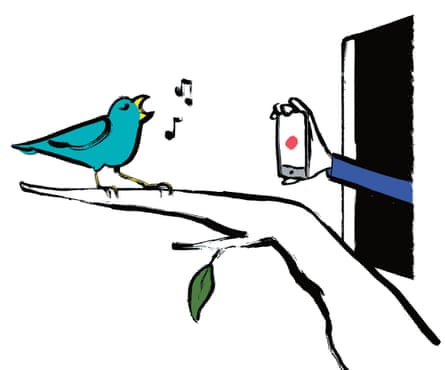
Don’t ever dare say something as stupid as, “Oh wouldn’t it be nice to have one day of that again, the world on pause”? If there are things you miss – peace, privacy, it being OK to leave your phone upstairs – then find ways to replicate them, you coward. There were some incredible accidental qualities, yes, but they weren’t remotely worth the cost, so don’t miss them; just remember them. Some examples:
Keep downloading new music, not just the same old songs.
One morning, you realised you didn’t know the name of any of the birds singing outside. You downloaded an app to record and identify them. Blue tits and blackbirds and wrens. I wonder how many you have collected by now.
Stay connected to your friends, as much as you did. Call your mum for no reason. Keeping FaceTiming Dad. Not just a call. Look at his face.
And enjoy variety. Life was bland, like a bowl of rice with no seasoning. Populate your life, not with stuff you can order to the door but with people, and experiences, that are all different tastes and flavours. Identity them, appreciate, remember them.
And keep listening to the birds.
James Graham is a playwright (This House; Ink) and screenwriter (Quiz; Brexit: The Uncivil War). This House is streaming as part of National Theatre At Home from 7pm on 28 May to 4 June
‘I hope you will tell me you are still speaking out’
Prof Helen Ward, scientist
Dear Helen,
If you are reading this, that is good news. It means the biggest public health disaster in my lifetime has spared you, though I fear it will have claimed the lives of many tens of thousands of others. I fear it will also have had a lasting impact on the standing of our speciality – public health.
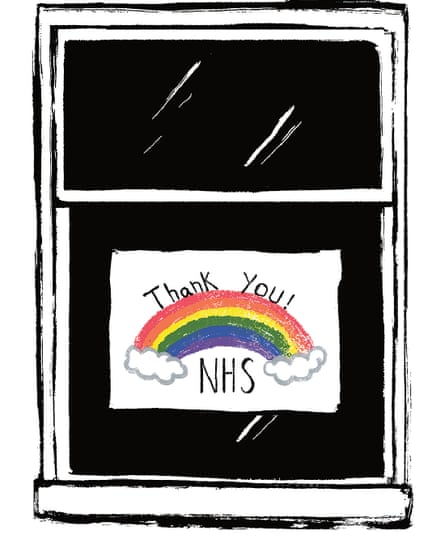
I wish you could tell me whether there is protective immunity after people recover from infection, and how long it lasts. Do you know what role children play in transmission? And how exactly does this virus spread? Have you found an effective vaccine and treatment, and if so, are they widely available in low-income countries as well?
I hope you can look back with some pride and say, yes, people like me made a difference. I hope our public health leadership was embraced by government, and we were able to minimise deaths and the long-term consequences of both the disease and the control measures.
My research career has focused on HIV, another devastating infection that spread rapidly across the globe. In the 39 years since the first Aids death was recorded in the UK, around 25,000 people have died here. Compare that with the more than 40,000 people who have died from Covid-19 in the UK already. But rather than despair, you will marvel, as I already do, at the pace of scientific advance in these early months. Surely some of this will have borne fruit. You will smile, either at my naive optimism, or with satisfaction that we have started to turn this around, as we did with HIV.
You will no doubt be in the midst of a political and ideological struggle over what the new normal should look like. Public inquiries will be under way to see if I and many others have been right in saying that the government’s slow response was reckless; there will be scrutiny of the way contracts are handed to government allies, of how the crisis was used to further the privatisation of public services at the expense of transparency. I hope you are among the voices urging an end to this.
Have you started shaking hands yet? I expect you’re still wary of travel, but please tell me you have managed to get back to the Lake District, and bagged a few more Wainwright peaks.
We are locked down in our nuclear unit of two parents and two adult sons. In rediscovering old videos, having more meals together, and virtual catchups with wider friends and family, we are creating some lovely new memories for you. But then the guilt resurfaces: so many people are isolated at home, or trapped in abusive relationships; many more are in overcrowded conditions with no access to outdoor space.
I hope when you reply, you will tell me you are still speaking out. And please, take care: things may be better, but you can be sure it’s not yet over.
Helen Ward is professor of public health at Imperial College London
‘Will your neighbourhood WhatsApp group still be active?’
Julian Baggini, philosopher
Dear Julian,
I’m writing to you two months after you came out of hospital, still recovering from the pneumonia that put you in an intensive care unit and worryingly close to being put on a ventilator. (Purely to satisfy our curiosity, I hope by now you’ve found out if it was caused by Covid-19. Testing wasn’t yet in place; but now we know that many of the symptoms were odd for pneumonia, and quite typical for coronavirus. For instance, your oxygen levels were very low, but you didn’t feel breathless, something called happy or silent hypoxia. Don’t pretend you remember the technical term: even I had to look it up.) Already I have to try hard to remember what it was like to be so weak I could barely walk, so slurred in my speech that several doctors asked me if I “always spoke like that”.
Fortunately, you recovered well, the irony being that just as you were ready to go out, everyone had to stay in. Like millions of others who were forced to stop and think, an awful illness gave you the chance to consider your priorities. Being a misanthropic git, that did not mean wanting to spend more time with friends and relatives, lovely though they are. It meant appreciating that less is more. Before becoming ill you were doing too much, spreading yourself too thinly. For freelancers, it’s the oldest trap in the book, but you still kept falling into it.

I’m curious to know how, if at all, the world around you has changed. As I write, many people are enthusiastically predicting that community is back, that greed is out. I’m not so sure. Even when we’re convinced we’ve shaken off old habits, they have a tendency to creep back until, unnoticed, they’re as much at home as ever. Will your neighbourhood WhatsApp group still be active, or will it have become an occasional forum for stupid videos? Will all those independent shops and cafes be thriving on the love everyone said they discovered for them, or will months of shutdown and online ordering have killed them off for good?
I hoped that, as a society, we’d rebalance our excessive individualism with a renewed sense that no one is an island, and that who we are is intimately connected with our relations to others. I also hoped we’d learn that knowledge acquisition is a collective effort that requires drawing on a range of expertise, not simply your own conviction that the virus would go away, or “following the science”, if that means consulting a narrow group of specialists.
It feels like a time of momentous transformations, but I fear that you, like the rest of the world, overestimate your capacity for change. Please, prove me wrong: restore my faith that we naked apes are capable of learning our lessons.
Julian Baggini is a philosopher and the author of How The World Thinks and Babette’s Feast, published on 28 May by BFI Film Classics
‘What a thrill it was to press your face to the gate, and to see the elephants’
Mark O’Connell, author
Dear Sir,
You might remember, a year ago, the Guardian’s Weekend magazine asked me (by which I mean you, sir) to write a letter to you (by which I mean me) about this Covid-19 situation. I know you’re probably very busy, what with everything that’s been going on. The whole Nobel prize thing in particular: nice hustle, sir! Anyway look, as I say, I’m sure you’re very busy, so I won’t keep you long. I wanted to talk to you about the elephants.
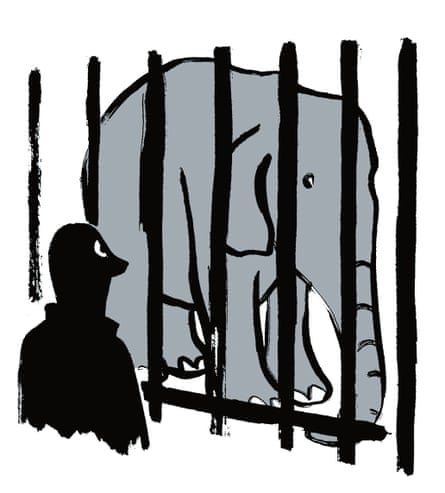
There was a time when you couldn’t venture any further than two kilometres from your front door. There was a time when, if you wanted to do something, anything at all, that thing basically had to be going for a walk in the park. At first, you may recall, this seemed unbearable. The boredom! The undifferentiated glutinous mass of days! The levelling of the entire landscape of the future! (“Nothing happens, nobody comes, nobody goes, it’s awful!” as your fellow Irish Nobel laureate Samuel Beckett memorably put it.)
But then, eventually, you started to explore the park a bit more. Your standards for what constituted an interesting and pleasurable experience, the highlight of a given day, were radically lowered. And this, it turned out, was no bad thing. It was just very nice, actually, to walk through the park and listen to the sound of the wind rustling in the trees and the unseen animals making their various noises from inside the closed zoo.
Do you remember the day you discovered that you could glimpse the elephants through a service gate at the rear of the zoo? What a thrill it was to press your face to the gate, and to see four or five elephants just going about their business. And how you did it again the next day, and the next. Maybe it’s hard to remember what a pleasure this was – maybe it’s been eclipsed by the memory of the king of Sweden presenting you with a cheque for 9m kronor.
But I think you should try to remember it. I think you should remember the elephants, sir, and how great it was to see them, and how much pleasure there still was in the world, even when its radius was only two kilometres.
Mark O’Connell is the author of Notes From An Apocalypse, published by Granta at £14.99
‘My big hope is that, by the time you read this, there will be a vaccine’
Hugh Pym, broadcaster
Dear Hugh,
None of us will ever forget these months: long, exhausting days for me and my BBC colleagues, but nothing like the punishing shifts put in by NHS and social care staff. Spending a day at Addenbrooke’s hospital in Cambridge was a humbling experience, and I won’t ever forget the time a London hospital ran out of critical care beds for coronavirus patients, or when a senior NHS official told me they were “scared”. There were fears the NHS would be overwhelmed. But, thanks to extraordinary efforts, it coped when it was needed most.
My big hope is that, by the time you read this, there will be a vaccine, and drugs and therapies available. Hopefully the world’s finest scientific minds, including British research teams, will have cracked it, with pharmaceutical companies working for the common good, at cost and not for excessive profit.
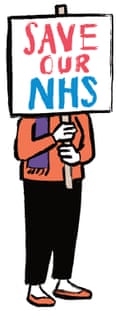
I hope we will have begun to value all health and care workers, and pay them accordingly. We will need a big rethink of social care and how it is funded, and a full appraisal of what funding the NHS needs to continue delivering the outstanding care we have all applauded every week. There is a backlog of work postponed that has to be addressed, and things will no doubt be done differently.
Much of the work of GPs has been carried out remotely, by phone or video; many doctors say this has allowed them to talk to more patients and freed up time for face-to-face consultations with the sickest. More virtual hospital outpatient appointments should also be possible. This should be one of the positives to come from the crisis.
I have cherished time spent with my family during lockdown, rediscovering the joys of backgammon, jigsaw puzzles and proper workouts in the garden. I hope we never live through another period when we cannot see older relatives. They deserve better than being left to cope alone. They have at least begun to get to grips with Zoom, including a virtual Scrabble game organised by my brother. I hope the spirit of quizzes and chats with extended family and friends continues, and that we will live our lives more simply, making more time for others and worrying less about the immediate pressures of daily life. We should ensure that those who felt isolated are looked after and that the burden of loneliness felt by many is lifted.
Hugh Pym is BBC News health editor
‘I hoped this plague would sweep lightly over my country, but feared otherwise’
Bernardine Evaristo, author
Dear Bernardine,
I thought plagues were a thing of the past until history proved otherwise. I hoped this one would sweep lightly over my country, leaving zero fatalities, but feared otherwise, and have been proved right. I’m shocked at the incompetence and arrogance of my country’s government from the start to the end, and how people were misled to their deaths. I’m shocked at how my country reclaimed the dubious position as a world leader with our disproportionately high number of deaths. How can this small and prosperous island corner over 10% of the world’s virus-deceased? A chart-topper. A super-spreader. The United Kingdom of Bad Government Decisions.
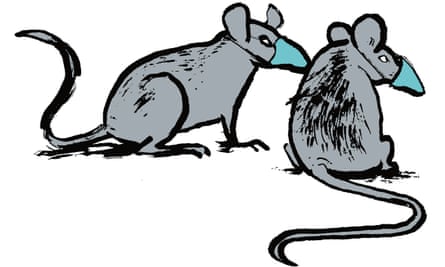
As a writer I’m used to working at home, sitting in front of my screen, so in this regard it’s business as usual. I’ve been writing a lot of small commissions as well as self-filming for online festivals and events. The plague and quarantine have forced me to pause and reflect, but I won’t be writing about it in my next book. We’re in the middle of it right now and it will take time to process. In a year’s time I will have started a new novel and it will be Covid-19-free. I’m pretty sure readers will soon tire of the pandemic fiction that will be hitting the shelves around now.
I imagine that I will be relieved to have survived, and grateful for the vaccine that will be inoculating the human race. Hallelujah. I will be grateful that climate change has shot up the agenda, because reduced gas emissions during lockdown proved the science of global warming to non-believers. I will be grateful we are once more able to congregate and enjoy social communion with others. I will be grateful that people will be safely back at work, and earning, and that students and school pupils will be back in their classes, sitting side by side, and learning. I will be grateful that the feeling of community spirit that emerged when we were at war with an invisible enemy, survives. I will be grateful that those who showed their unsuitability for leadership are no longer in power.
But I will miss the quiet of the city, which sounded more like the countryside. I will remember watching a crow pecking at a rubbish bag, before strutting down the empty road outside my window, like an alpha male without a care in the world. I remember thinking how quickly London could become a jungle overrun by feral pigeons, cats, foxes and rats, strolling around in the middle of the day like they own the joint.
I will remember missing going into cafes, seeing theatre, meeting up with family and friends. And I will miss the cleaner air of the city from this time, and the slower pace, and I will be deeply grateful that my own life did not come to a full stop. This is what I will have learned, to take nothing for granted - to count my blessings every day.
Bernardine Evaristo is author of Girl, Woman, Other, which won the Booker prize in 2019 and is published by Penguin at £8.99
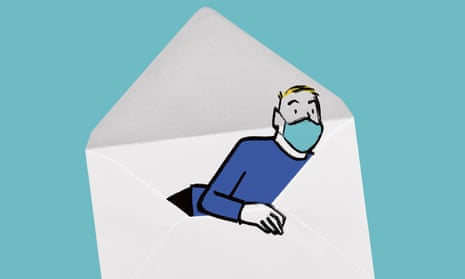
Comments (…)
Sign in or create your Guardian account to join the discussion